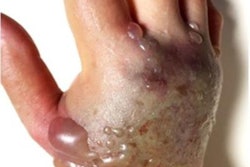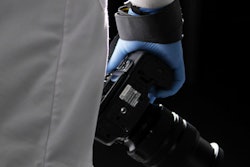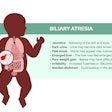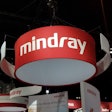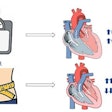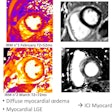
A coroner plans to refer two Melbourne doctors -- including a radiologist -- to the Australian Health Practitioner Regulation Agency (AHPRA) after finding their actions and those of several companies contributed to the death of a patient who suffered an allergic reaction during a CT coronary angiogram organized by her employer, according to a local media report.
In a long-awaited legal ruling that may set a precedent, coroner Simon McGregor said an inquest into the death of Peta Hickey, 43, had uncovered a screening regime and an industry that put profit over patient care. He called for federal Health Minister Greg Hunt to undertake an audit of all Australia's private radiology clinics, stated a report published on 22 November in the Age.
"The snapshot provided by the inquest has revealed an industry putting profits over patients," McGregor said. His 175-page report outlines a string of bad practices and poor standards and confirms that emergency practice drills for managing emergencies had not taken place.
Fatal reaction
Hickey's exam was suggested by her employer, Programmed Skilled Workforce Limited, on 1 May 2019, the Age reported. The company had begun a testing regime for all senior staff after a colleague suffered a near-fatal cardiac arrest while on a work trip to Japan in 2018.
The mother-of-two had no history of heart problems, but she had an anaphylactic reaction to contrast injected as part of the CT coronary angiogram under the care of radiologist Dr. Gavin Tseng, and she died in hospital eight days later. She had never met or spoken to the doctor who signed her referral, Dr. Doumit Saad, the article stated.
 Dr. Gavin Tseng. Photo courtesy of Paul Jeffers.
Dr. Gavin Tseng. Photo courtesy of Paul Jeffers.The coroner has reportedly called for EpiPens to be made available at testing sites and for a nationwide audit of all radiology clinics after finding there was a widespread acceptance of incomplete radiology referrals.
"Peta died as a result of substandard clinical judgment from doctors at the beginning and the end of the [heart check] program, combined with the misalignment of incentives amongst the various business entities that facilitated the process," McGregor said.
Poor management
Tseng administered the contrast at Future Medical Imaging Group at Moonee Ponds. Soon after the injection, Hickey complained of dizziness and shortness of breath before losing consciousness. Tseng said he didn't give her potentially life-saving adrenaline because he could not do two things at once, the Age reported.
Two teams of paramedics attended the patient (the first crew did not give adrenaline, but the second did), but Hickey suffered multiple organ failure and died at the Royal Melbourne Hospital eight days later. A postmortem revealed a normal heart and coronary artery and no evidence to suggest a history of symptoms or signs relating to cardiovascular disease.
"Her subsequent anaphylactic relation to the contrast dye was poorly managed by Dr. Tseng, and there was nothing the other radiology staff or the emergency services personnel could do to reverse the situation," the coroner said. "The conduct of Dr. Saad and Dr. Tseng departed from normal professional practices."
McGregor said he would now notify the AHPRA of the two doctors' "insufficient and unsafe" actions. He noted that Saad authorized the compiling of referrals using his signature for patients he had not seen, failed to halt the testing program when he learned his signature had been used, and failed to apply ethical standards, seeing people as clients or candidates rather than patients, according to the article.
The coroner also said that not only did Tseng continue with Hickey's scan despite her invalid referral but he also undertook a CT scan in similar circumstances only days after the patient's severe contrast reaction.
McGregor made 40 recommendations involving 15 entities, giving them three months to issue public responses, the Age stated. The report includes some discussion of the clinical value of CT coronary angiography for screening, even though guidelines do not support this use.
In the case, the radiology company's lawyers appear to have attempted to lay the blame on the radiologist. Kathryn Booth, medical negligence principal at Maurice Blackburn Lawyers in Melbourne, reportedly said this was a case of corner-cutting and of subjecting patients to a dangerous procedure without assessing them for risk factors. In his report, however, McGregor criticizes the radiology company for not ensuring all staff were adequately trained in cardiopulmonary resuscitation.
A full copy of the coroner's report is available for download.




